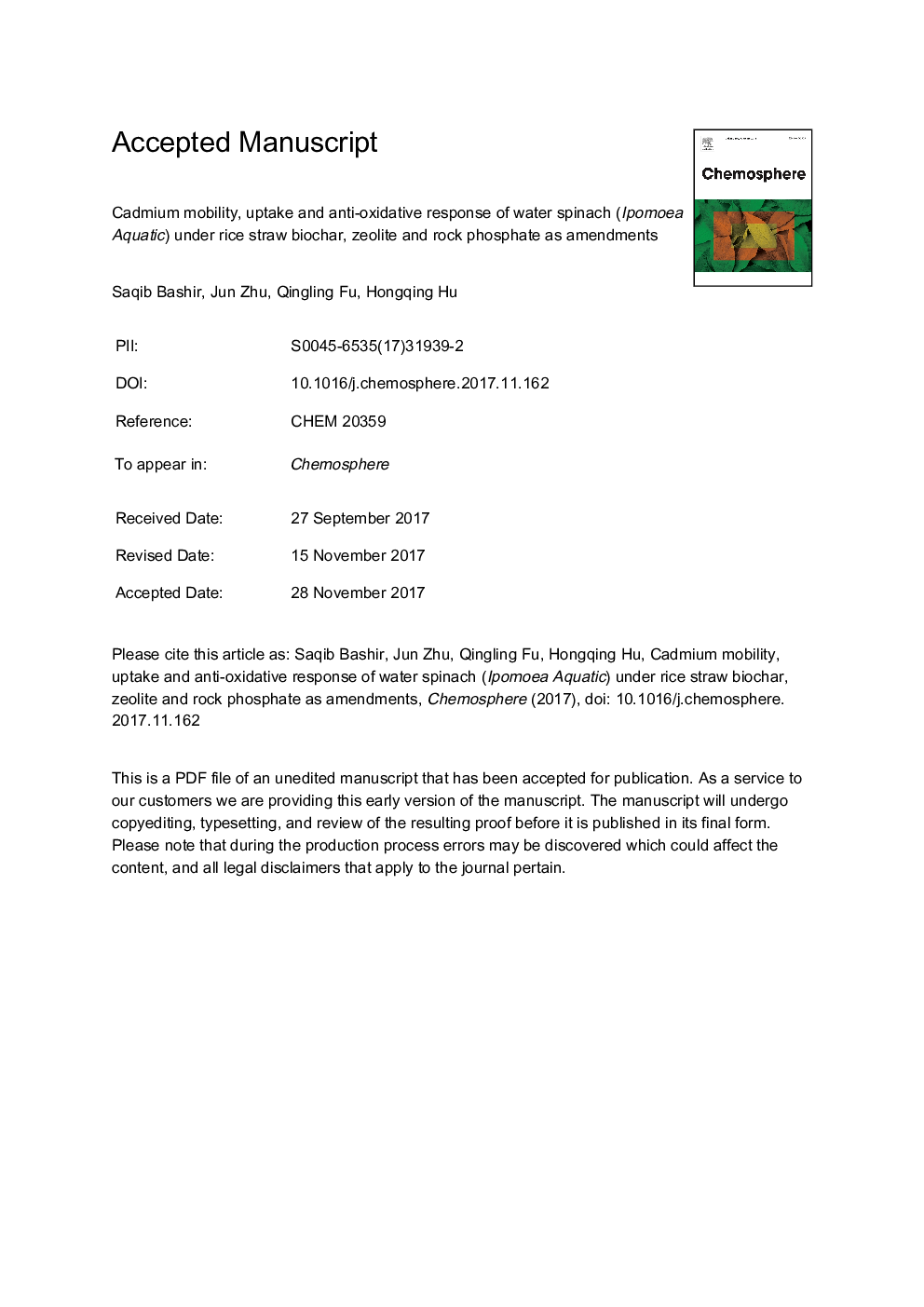| Article ID | Journal | Published Year | Pages | File Type |
|---|---|---|---|---|
| 8852494 | Chemosphere | 2018 | 33 Pages |
Abstract
Agricultural soils contamination with cadmium (Cd) has become a serious concern through anthropogenic activities. The possible environmental friendly solutions for Cd are required to address its mobility through various cost effective amendments. This study aims to evaluate the impact of rice straw biochar (BC), zeolite (ZE) and rock phosphate (RP) stabilizers to minimize the potential risk of Cd mobility and its uptake by water spinach in acidic soil through pot experiment. Concentration of Cd in TCLP and CaCl2 extract gradually decreased with the increase of amendments (BC, ZE and RP) rates. The increase in BC addition from 1.5% to 3% significantly decreased CaCl2-extractable Cd by 65.78%-72.89% and TCLP extractable Cd by 31.16%-37.66% respectively, over control. Whereas, RP addition decreases 53.4%-65.18% and 11.68%-19.48% in CaCl2 and TCLP extractable Cd respectively, as compared to control soil. The addition of BC, ZE and RP decreased Cd uptake by 22.91%-61.82% with 1.5% and 3% application rate, respectively. Moreover, the antioxidant enzymes activity i.e., superoxide dismutase (SOD) and peroxidase (POD) decreased with the addition of BC, ZE and RP under Cd stress. In conclusion, rice straw biochar could be highly recommended as a safe stabilizer to immobilize Cd in polluted agricultural soils.
Related Topics
Life Sciences
Environmental Science
Environmental Chemistry
Authors
Saqib Bashir, Jun Zhu, Qingling Fu, Hongqing Hu,
